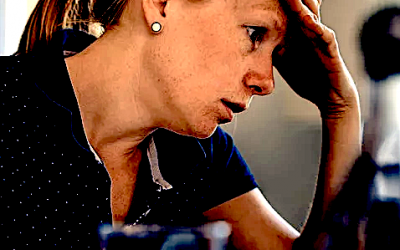Overcoming Time, Review of the Dr. Joe Dispenza book Breaking the Habit of Being Yourself
Live your desired future in the now.

Your nervous system does the same type of thing
A trigger would create a cascade of chemical reactions which changes the body physiologically. And this happens subconsciously. You don't have to instruct yourself to blush when embarrassed. This is a subconscious response to stimuli. This is another reason why it's hard to change. Maybe some habits can be improved when living in the present, but the subconscious body/mind is living in the past and it frequently steers the bus when we're not paying attention. At those times we react subconsciously, we expect a predictable event to occur in reference to a memory of the past similar to Pavlov's dogs.
These adaptive and automatic survival responses are great but sometimes we get in our own way.
Consider a moment where something irked you somewhat. After that event you felt a tad distressed. This is what Dispenza calls the refractory period. For instance consider what someone might be going through after a breakup or a job loss. That would likely result in some kind of stress for maybe a few hours. Maybe a few days. That's what Joe Dispenza calls a mood. Stretch this out further and the 'mood' lasts for weeks or perhaps months. This is what Dr. Joe Dispenza calls a temperament.
Thinking about a past event is going to evoke within us the chemical reactions linked to that event.
If done long enough it becomes our personality.
Joe Dispenza asks a question in his book 'What happens if we begin to anticipate some unwanted future experience or even obsess about a worst-case scenario based on a memory from our past?'
(See video for review)
In that instance we are programming the body to experience a future event before it occurs and at that moment the body is no longer in the present or in the past. It is living in the future, but a future based on some construct of the past.
How do we get out of this? How do we get out of this habit? How do we get to unlearn these responses?
One of the ways is to be able to ask yourself more empowering questions such as:
How can I live this day as one great life?
What's the greatest ideal of myself I can be today?
And then start living in that way. Asking yourself empowering questions enables you to be creating in the present instead of resting on thoughts in the past. The questions can be about what you can do now to improve your future and then live in that way.
Long-term activation of this stress response negatively impacts our health, how we're interacting with other people, our personalities, the way that we achieve or do not achieve our goals etc because with more focus on the past, the less prepared we are for an ever changing future. With this awareness it's easier to recognize the importance of breaking the habit of being yourself by living some of your desired future in the now. The positive benefits that come from becoming more of your ideal you, can be cultivated by increasing meta-awareness and realizing that you are more than your thoughts.
To learn how to do this, check out the chapter 5 review of Dr Joe Dispenza's book 'Breaking the Habit of Being Yourself.'
Career Opportunities for People with Mild Autism: A Comprehensive Guide
Autism Spectrum Disorder...
How the Oura Ring Revolutionizes Sleep Tracking Compared to Other Fitness Trackers
In the ever-evolving...
A 15-Minute Hypnosis Script for Adults with Mild Autism: Cultivating Calm and Connection
Many adults on the autism...
How CREB is Compared to a Mayor’s Office.
Imagine the brain as a...
How PTSD Was Cured Four Times in 5 Hours
This case study shows how...
Everything You Need to About Short Term Memory But Forgot to Ask
Short-term memory has...


















